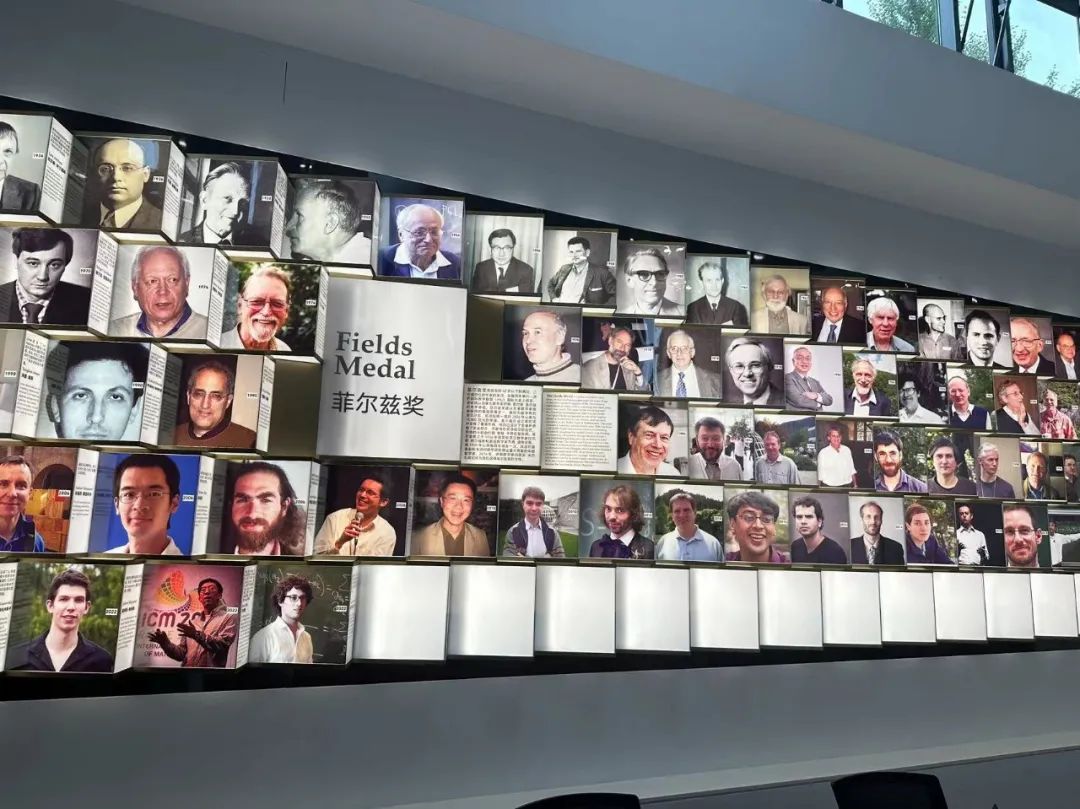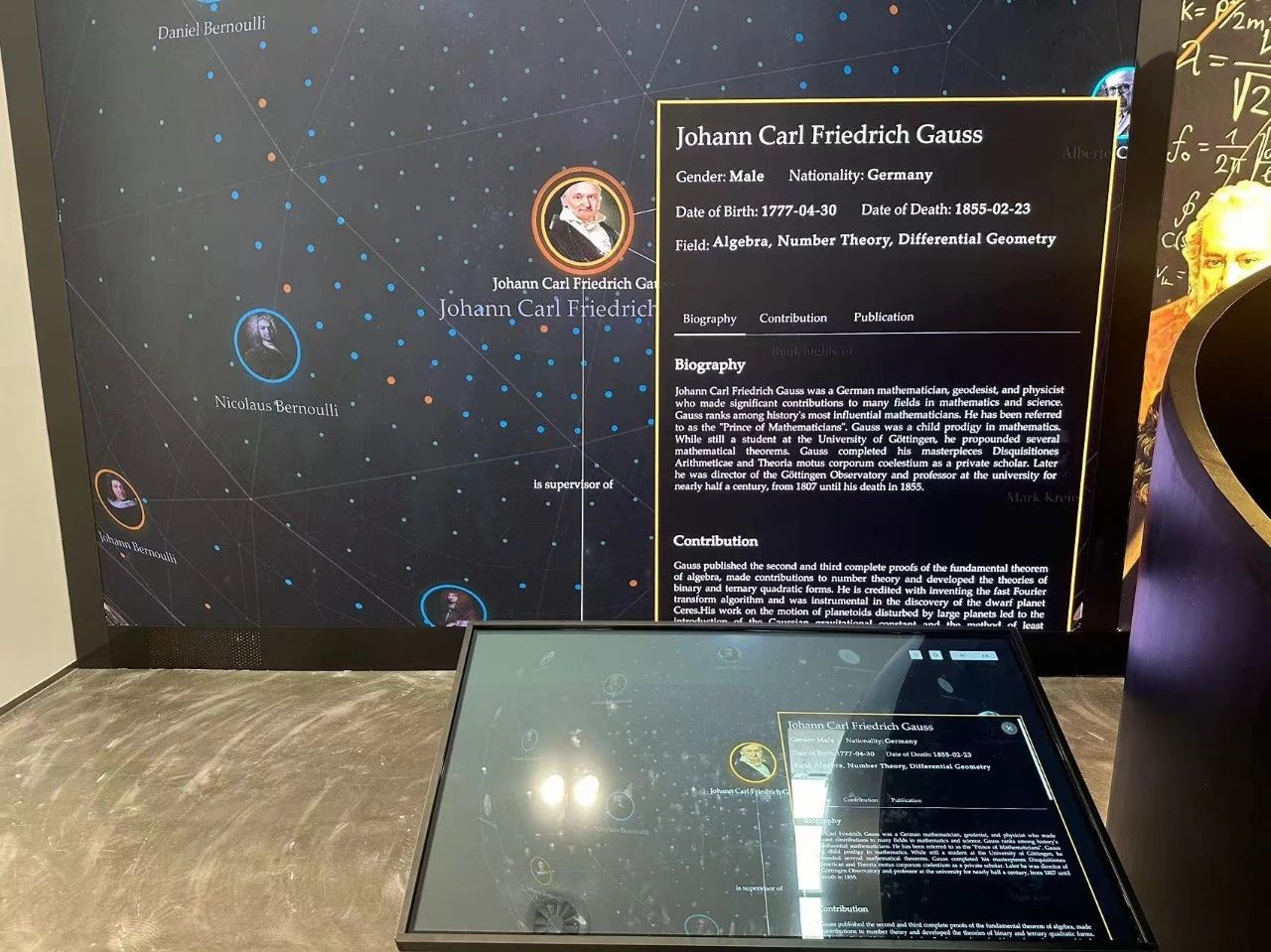Yanqi Lake Mathematics Museum Opens in BIMSA
22nd July, 2024
On July 15th, the Yanqi Lake Mathematics Museum, located in Huairou Science City, held its official opening. The museum is centered around the development and preservation of mathematics, showcasing the academic accomplishments and life stories of prominent mathematicians from both China and abroad in the modern times. The opening ceremony of the Yanqi Lake Mathematics Museum was organized by the Beijing Institute of Mathematical Sciences and Applications.
"Mathematicians do not aspire for wealth or a thousand-year legacy, as these are all destined to turn to ashes. What we seek is the eternal truth. Our passion lies in theory and equations. They are more valuable and genuine than gold, because they represent the unique way in which nature expresses itself. They are more splendid and captivating than poetry. They are the wellspring of all applied sciences and can shape the foundation of modern society," said Shing-Tung Yau, principal planner of the museum and chair professor at Tsinghua University.
The museum presents a dynamic panorama of the history of mathematics, allowing visitors to immerse themselves and experience the enchantment of mathematics.
Yanqi Lake Mathematics Museum is divided into two floors and five core exhibition areas, including "Four Major International Mathematical Awards," "32 Mathematicians Who Have Influenced the World," "International Congress of Basic Sciences," "Map of Mathematicians," and "Contemporary Development of Mathematics in China." It comprehensively outlines the development of mathematics in China and abroad, with a concentrated display of the academic achievements of world-renowned mathematicians, conveying the spirit of mathematicians in their pursuit of truth and beauty.

The "Four Major International Mathematical Awards" exhibition area showcases the life stories and achievements of laureates of the Fields Medal, the Wolf Prize, the Abel Prize, and the Crafoord Prize. These globally recognized prestigious awards in mathematics are renowned for their rigorous selection criteria, and the recipients are typically distinguished figures in the field. Their accomplishments have had a profound impact on the development, application, and dissemination of mathematics.
Upon entering, visitors can look up and see 32 large portraits adorning one wall, depicting the "32 Mathematicians Who Have Influenced the World." From Euclid, hailed as the "Father of Geometry" from the 3rd century BCE, to modern mathematical giants like Hironaka Heisuke, these pioneers have solved numerous long-standing problems that have troubled academia. Their groundbreaking advancements have enriched our understanding of the world and nature, setting milestones in the history of mathematical development and laying a solid foundation for modern mathematics.

The most eye-catching exhibition area is undoubtedly the "Map of Mathematicians," where visitors can delve into the lives, works, and accomplishments of hundreds of mathematicians through an interactive large screen. They can also explore the intricate web of relationships, including "teachers," "friends," and "competitors," to gain insight into the interconnections and developmental trajectories among different branches of modern mathematics.
The "Contemporary Development of Mathematics in China" exhibition area, located on the second floor, showcases the remarkable achievements of four master mathematicians —Shiing-Shen Chern, Wei-Liang Chow, Loo-Keng Hua, and Chia-Chiao Lin—who have significantly contributed to 20th-century Chinese mathematics. It also introduces 21 Chinese mathematical research institutions, providing visitors with insights into both the "academic leaders" and the rich historical background of Chinese mathematics, while immersing them in the vibrant landscape of diverse talents in the present.
Furthermore, the exhibition incorporates the development history of the International Congress of Basic Sciences, elucidating the background and achievements of this international scientific gathering.
"Rarely can you find a place that comprehensively showcases the development of mathematics. At Yanqi Lake Mathematics Museum, you can witness the evolution of human mathematics. Regardless of how the world changes, mathematics, as a fundamental discipline, remains as indispensable as the air we breathe," remarked Tian Ye, an academician of the Chinese Academy of Sciences, after visiting the exhibition.





